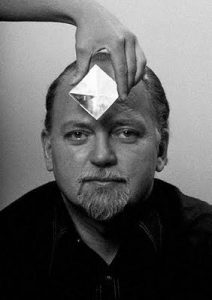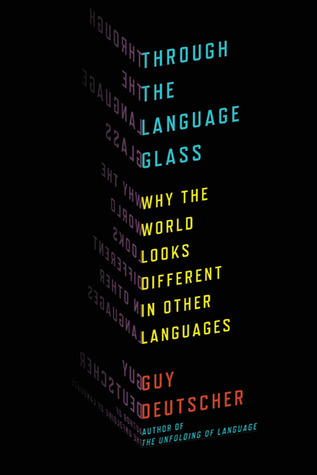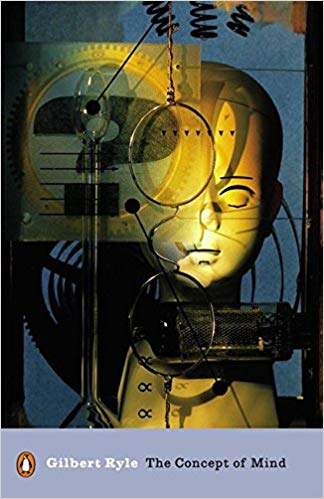I originally wrote this as a paper for a linguistics course I took two years ago. I’ve been thinking about this issue quite a lot recently, and I was quite pleased by this essay when I read back over it. It’s a little more academic than my previous posts, and it’s specifically written from the perspective of a language teacher, but I think it gets the point across pretty clearly. I’m reproducing it here without any alterations.

A language teacher’s role is to assist their students in improving their linguistic ability so that they are free to make more and better choices in their lives. The skills that are taught in a language classroom shape the students’ lives in a very real way. Language both shapes and reflects identity. A person’s choices in life depend on their linguistic competence, and the words that people use to express themselves give huge insight into their personalities, desires and moods. Situations in which a person’s agency is taken away, situations in which that person is forced to say things that they find abhorrent, are fortunately rare, but situations of this kind do exist and they are damaging. The oath of citizenship that all new Canadian citizens are required to take is one example of this kind of situation. This oath is colonial in nature and damaging to new immigrants to Canada, both those who take it and those who abstain from taking it and remain in Canada as mere permanent residents without the right to vote or hold certain government positions. In this paper, I will discuss why this oath is damaging and why ESL teachers in Canada need to be conscious of it.
In their 2011 paper, Discordant anthems: ESL and critical citizenship education. Citizenship Education Research, Brian Morgan and Douglas Fleming argue that the ways in which ESL is currently taught to immigrants to Canada who are hoping to become citizens there is unsatisfactory. They claim that the standards that the teachers of these immigrants must work with, the Canadian Language Benchmarks, were not designed to accommodate the specific needs of these immigrants. They claim that these standards seem “to view English language learners as having rights and responsibilities that pertain almost exclusively to being good consumers. The content includes the need for learners to understand their rights and responsibilities as a “client, customer, patient and student” (p. 95), but not as workers, family members, participants in community activities, or advocates.” Instead of increasing the ESL learners’ agency as new Canadians, these standards do little more than help these immigrants fit in; ultimately, the standards serve the pre-existing Canadian social system rather than the immigrant.
I am in agreement with Morgan and Fleming’s analysis of the Canadian Language Benchmarks, but I believe that the issue of language instruction for prospective citizens to Canada is just one manifestation of a far more insidious and complicated problem. When I started reading Morgan and Fleming’s article, I was a little unsure as to what they meant by “critical citizenship”. The word citizenship has come to be used in several ways (digital citizenship, global citizenship), and I was not sure if “critical citizenship” was a technical academic term that I had not yet come across. However, it became apparent fairly quickly that the authors were not using the term citizenship in an obtuse manner; they were literally talking about Canadian citizenship. As an immigrant to Canada, I have had to familiarize myself with the Canadian citizenship process, and it is my belief, and the belief of many others, that this process is demeaning to the individuals who have to go through it. It requires new immigrants, a vulnerable group of people, to use language to compromise, undermine and sometimes negate their identities.
The Government of Canada’s official website gives a list of conditions that an individual must meet before they can apply to become a citizen of Canada. According to this website, the prospective citizen must have already received permanent residence status in Canada, have lived in Canada for a certain amount of time, and have three years records of income tax. The individual must also have a satisfactory criminal record and they must have reached level 4 of Canadian Language Benchmarks for both speaking and listening. (Given this information, Morgan and Fleming’s concern is justified. A person can not become a citizen in Canada unless they have reached level 4 of the standards that Morgan and Fleming are critiquing. Interestingly though, these authors note that “In the entire [CLB] document, there are only three references that could be considered to be associated with citizenship”, and “Further, these references to citizenship occur at the very highest levels of proficiency” (pp. 6-7). This is peculiar considering that CLB level 4 is the requirement for citizenship and that there are 12 levels in total.) However, the Canadian Government’s list of criteria for potential citizens is incomplete. There is at least one more requirement for all immigrants to Canada who wish to become citizens: the willingness to swear allegiance to the Queen.
Canada prides itself on being a multicultural and welcoming country, but it still requires its citizens to swear allegiance to the descendant of individuals for whom this land was stolen, the heads of the largest colonial empire the world has ever seen. Ena Lee, in her 2015 article Doing Culture, Doing race, writes, “liberal discourses of multiculturalism, equality and tolerance such as those prevalent in the Canadian context of multicultural diversity lull us into complacency that we have moved away from these dark pasts, but have we genuinely moved to more critically aware spaces, or have we merely languaged our way out of the shadows of the past while remaining subject to its discourses and common-sense notions?” (p. 3). Despite the national image it wishes to promote both within itself and to other countries, Canadian society is unwilling to abandon its colonial, Eurocentric traditions. Immigrants of colour, from countries around the world are still being asked to swear the following oath of subservience to a white monarch from Great Britain.
I swear (or affirm)
That I will be faithful
And bear true allegiance
To Her Majesty Queen Elizabeth the Second
Queen of Canada
Her Heirs and Successors
And that I will faithfully observe
The laws of Canada
And fulfil my duties
As a Canadian citizen.
From Government of Canada – Oath of Citizenship
Queen Elizabeth the Second, Queen of Canada’s full title is “Elizabeth II, by the Grace of God, of the United Kingdom of Great Britain and Northern Ireland and of her other realms and territories” (Britannica.com). The phrase ‘by the Grace of God’ in her title implies the Divine Right of the British monarch; it implies that this person was chosen by God to rule over the United Kingdom and her other realms and territories, including Canada. New Canadian immigrants are essentially being asked to acknowledge that this woman was chosen by God to be their ruler and to swear allegiance to her. This is not bureaucratic rigmarole that the new citizen faces, it’s not just another box they have to tick off on a form; it is a solemn oath that is given during an official ceremony. It is hardly surprising that language training for prospective Canadian citizens focuses on fitting them into a box rather than preparing them to be dynamic, successful individuals when the final step of becoming a Canadian citizen is a mandatory oath of demeaning subservience.
Morgan and Fleming note that “the citizen-subject is not the autonomous, free-reasoning individual commonly depicted in liberal discourses but a form of subjectivity shaped by the dominant discourses of nationhood.”(p. 2). The new citizen is for Canada as opposed to Canada being for them, and the Citizenship Oath serves as a means of making this clear. For all of Canada’s progressiveness and multiculturalism, its immigration system still serves to maintain a certain social hierarchy. It is worth remembering that citizens born in Canada never have to take the oath. It is only for immigrants.
Leonid Sirota notes that “For some, swearing allegiance to what they regard as a person embodying inequality, colonialism, and oppression goes against their deeply-held republican or egalitarian values,”(p.1) but that some immigrants merely find the oath perplexing and bemusing and that others view taking the oath as symbolic (p. 2). So not all new citizens find the oath repulsive, but perhaps, for at least some of these immigrants, their lack of objections has something to do with their English proficiency. Remember that the Language requirement for citizenship is CLB level 4, ‘Fluent Basic Ability’. At this level the individual can “Understand, with considerable effort, simple formal and informal communication on topics of personal relevance” (CLB Standards, p. 28) and “Communicate information about common everyday activities, experiences, wants and needs” (CLB Standards, p. 64). At this proficiency level, the learner might not be able to voice their opinion on complex political and social issues in English. Also, it is worth keeping in mind the other issues that a new immigrant may be facing. Even if they find the oath objectionable, they might take it regardless, for the good of their family. As newcomers to the country, they will likely keep their complaints about that country to themselves so as not to draw unwanted attention to themselves.
As previously mentioned, the language that a person uses both reflects and shapes their identity. What does it do to a person’s self-esteem when they are forced to say something that they find morally repugnant, something that goes against values they hold dear? The United Kingdom has a complex history of colonialism, and has, throughout history, colonized countries on every habitable continent. Immigrants from these countries may have suffered directly from British Colonialism, but when they come to live in Canada, they are asked to swear allegiance to the British Crown. Also, individuals from countries that did not suffer under British colonialism may well have other political, religious and moral objections to swearing allegiance to a monarch supposedly chosen by God. All of these people are left with a choice: they can sacrifice their dignity and integrity and take the oath or they can abstain and remain in Canada only as tax-paying residents without the right to vote and hold certain government positions. There are many such residents in Canada. (Gray, 2015)
Ryuko Kubota claims that “engaging students in thinking and debating about controversial issues is educationally vital for developing critical thinking, building interpersonal skills in public discussion, and fostering morally responsible citizens in our society” (p. 7) Given then, that the Canadian citizenship procedure and the language standards that it requires are inherently unjust, discriminatory and oppressive towards new immigrants, it seems that the language instructors of potential Canadian citizens should address these issues in their classrooms. It will be valuable and empowering for one’s students to discuss a controversial issue that affects them directly. Kubota also notes that, “In a classroom, what the teacher or peers say or do not say about contentious issues might be shattering to students.” (p. 22) While the truth may be unpleasant, these students deserve to know the unsavoury details about the country they are living in. However, it is crucial to remember that the individuals coming to take language classes to attain citizenship will be primarily concerned with passing the interview portion of the citizenship procedure in which the officer decides whether or not they have sufficient English proficiency. While the conscientious instructor may want to warn the new immigrants of the problems of the system they are about to enter, doing so must be performed with extreme caution and sensitivity. The instructor’s job is still to aid the immigrants citizenship procedure, not to discourage it.
The issues with the Canadian citizenship procedures extend far beyond the control of language instructors, but the conscientious language instructor will feel compelled to address these issues in their language class. Doing so must be performed with the goal of empowering the students to use language to think critically so that they can join the battle for equity and fairness both while and after they establish themselves as a Canadian citizen. Fleming and Morgan quote Morgan and Vandrick’s claim that “the newcomer’s or outsider’s eyes and ears are alert to power in ways no longer available to habituated, domesticated insiders, who see but no longer perceive the beauty, horror and complacency around them.”(p. 3) The Canadian Citizenship Oath has been challenged in Canadian courts as unconstitutional on two occasions in the past 25 years, and both times it was brought to the attention of the court, it was done so by immigrants. (Sirota) Hopefully, by bringing this issue to the attention of more immigrants, language instructors will be able to do their bit in ridding Canada of colonialist oppression.
References
Centre for Canadian Language Benchmarks. Canadian Language Benchmarks. Retrieved November 3, 2017, from http://www.cic.gc.ca/english/pdf/pub/language-benchmarks.pdf
Encyclopædia Britannica. (2017, November 09). Elizabeth II. Retrieved December 05, 2017, from https://www.britannica.com/biography/Elizabeth-II
Fleming, D., & Morgan, B. (2011). Discordant anthems: ESL and critical citizenship education. Citizenship Education Research, 1, 28-40.
Gray, J. (2017, March 25). Supreme Court won’t hear citizenship oath to Queen challenge. Retrieved December 05, 2017, from https://www.theglobeandmail.com/news/national/supreme-court-wont-hear-oath-to-queen-challenge/article23211504/
Immigration Canada. (2017, October 11). Find out if you’re eligible – Citizenship. Retrieved December 05, 2017, from https://www.canada.ca/en/immigration-refugees-citizenship/services/canadian-citizenship/become-canadian-citizen/eligibility.html
Immigration Canada. (2015, December 22). Oath of Citizenship. Retrieved December 05, 2017, from https://www.canada.ca/en/immigration-refugees-citizenship/corporate/publications-manuals/operational-bulletins-manuals/canadian-citizenship/ceremony/oath.html
Canadian Government. (2017, April 18). What does “adequate knowledge” of English or French mean when applying for citizenship? Retrieved December 05, 2017, from http://www.cic.gc.ca/english/helpcentre/answer.asp?qnum=567&top=5
Kubota, R. (2014) “We Must Look at Both Sides”—But a Denial of Genocide Too?: Difficult Moments on Controversial Issues in the Classroom, Critical Inquiry in Language Studies, 11:4, 225-251,
Lee, E. (2015). Doing culture, doing race: Everyday discourses of ‘culture’ and ‘cultural difference’ in the english as a second language classroom. Journal of Multilingual and Multicultural Development, 36(1), 80-93.
Sirota, L. (2014). True allegiance: The citizenship oath and the charter. National Journal of Constitutional Law, 33(2), 137.
The Canadian Press. (2012, October 04). Lawyer Charles Roach dies with citizenship dream unfulfilled. Retrieved December 05, 2017, from http://www.cbc.ca/news/canada/toronto/lawyer-charles-roach-dies-with-citizenship-dream-unfulfilled-1.1292161

 Not, I guess.
Not, I guess. Robert Anton Wilson, an advocate of E-Prime
Robert Anton Wilson, an advocate of E-Prime “Rose is a rose is a rose is a rose.”
“Rose is a rose is a rose is a rose.”

 The Concept of Mind (1949) is the only thing I’ve read by Ryle. In truth, I only read a few chapters.
The Concept of Mind (1949) is the only thing I’ve read by Ryle. In truth, I only read a few chapters.